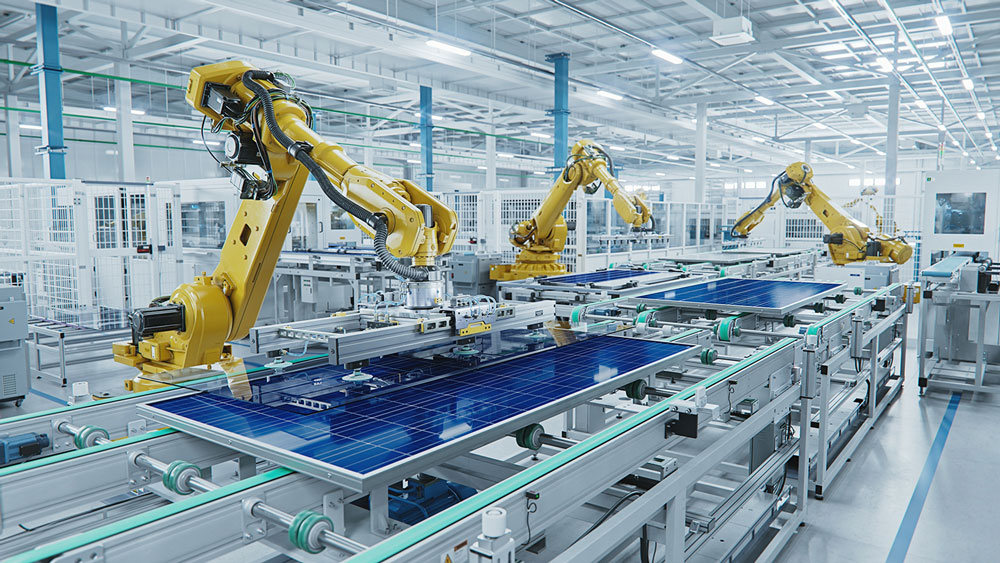Digitalization, a reshaped workforce, the evolving supply chain, sustainability, and cybersecurity will greatly impact the manufacturing sector.
Coming out of the pandemic and then the Great Resignation, manufacturing companies are hoping the future is not quite so volatile. As we look forward to the rest of 2023 and into 2024, here are 5 automation trends influencing the manufacturing sector.
Data Analytics, Artificial Intelligence, and Internet of Things (IoT) Integration
The utilization of data analytics and artificial intelligence (AI) in manufacturing processes can enable predictive maintenance, optimize production schedules, and enhance quality control. AI-powered algorithms can analyze vast amounts of data to identify patterns, make predictions, and optimize operations for better efficiency and profitability – and, as such, AI and Big Data will shape the face of manufacturing for the foreseeable future.
The integration of IoT devices and sensors into manufacturing processes can provide real-time data monitoring, predictive maintenance, and optimization of operations to go along with the AI and data analytics gains. IoT-enabled devices will further help streamline production, increase efficiency, and enable optimization of companies’ data-driven decision-making capacities.
Related to these tech advancements, manufacturers will leverage data analytics and AI to better understand customer preferences, optimize inventory, and enable faster order fulfillment.
Reshaping the Workforce and the Work Environment
In addition to increased implementation of automation and robotics, manufacturers will need to continue to invest in workforce development in areas such as internships and re-training existing employees, and by offering flexible work arrangements such as part-time employment and/or flexible shifts.
What’s more, employers will need to focus on employee retention through ensuring compensation packages are competitive, creating positive work environments, and offering opportunities for professional growth.
The Evolution of Supply Chains
Expect supply chains to become more agile and resilient so as to navigate disruption and uncertainty. This will involve implementing flexible production and distribution networks, dynamic inventory management, and robust risk assessment and mitigation strategies.
As a result, supply chain collaboration and transparency will become increasingly prevalent as manufacturers seek to diversify suppliers, localize production, and enhance supply chain visibility to mitigate risks and improve responsiveness.
Sustainable Manufacturing at the Forefront
As environmental concerns continue to rise, manufacturers are likely to focus more on sustainable practices. This can include energy-efficient production methods, waste reduction, recycling initiatives, and the use of eco-friendly materials.
Sustainable manufacturing can help companies meet regulatory requirements, improve their brand image, and reduce costs in the long term. Expect collaboration to increase as more organizations strive to reduce carbon emissions and adopt circular economy principles by designing products for reusability, recycling, and remanufacturing.
Digital Security Looms Large
Unfortunately, the increasing size of the digital footprint found in manufacturing means a greater cybersecurity risk. Individual manufacturers and entire supply chains are vulnerable to cyber attacks and data loss. Cybercriminals may exploit vulnerabilities in manufacturers’ IT systems, targeting sensitive data, disrupting operations, and even demanding payments in ransomware attacks.
Securing IoT devices, implementing strong authentication protocols, and monitoring network traffic are crucial for maintaining a secure manufacturing environment.
Next Step
While challenges exist, the manufacturing industry is poised for positive growth due to all the aforementioned trends. By embracing innovation, investing in talent and infrastructure, and adapting to evolving customer demands, manufacturers can thrive in an increasingly dynamic and competitive global market.
AEC has strong, strategic partnerships with automation and robotics manufacturers. We’re adept in integrating robotics and automated equipment into any conveyor system for manufacturing or distribution operations.
Plus, everything you need for the entire project is taken care of through our turnkey services – project analysis and management, design, engineering, controls, installation, down to final walk-through and follow-up.
Contact us today for consultation from a material handling systems expert. We look forward to guiding you to the right solution.


